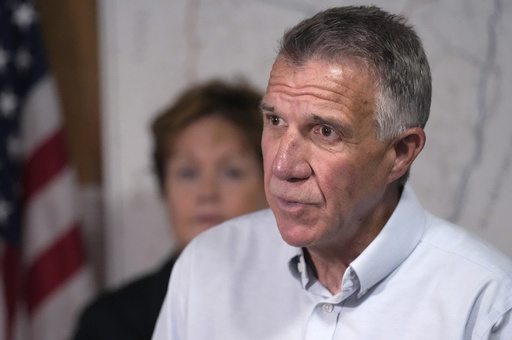
Republicans experienced significant success in various state legislative chambers during the recent elections, although Democrats also achieved some noteworthy victories in a fierce contest for state power.
Michigan stood out as a major shift, with Republicans regaining control of the House just two years after Democrats had claimed dominance over both legislative chambers and the governorship, marking the first time in four decades they achieved this. In Minnesota, Republicans appeared poised to create a tie in the House, disrupting the Democratic trifecta they had secured two years prior.
Over the past two years, Democrats had leveraged their power within upper Midwestern states to implement an ambitious agenda that favored abortion rights, gun regulations, and the strengthening of union bargaining capabilities. However, this progressive direction is likely to be halted as a new phase of divided governance emerges.
As ballots continued to be counted into Thursday in states like Arizona, Republicans were working to maintain narrow majorities in both legislative bodies amid a vigorous campaign from Democratic-affiliated organizations. Meanwhile, in Pennsylvania, Democrats sought to safeguard a one-seat majority in the House, while the Republicans retained authority in the Senate.
Nationally, Republicans will maintain dominance in a majority of state legislative chambers and governorships, with none of the eleven governorships up for grabs changing hands. Overall, the expected alterations in state legislative compositions appear to be minimal, according to insights from the National Conference of State Legislatures.
Republicans celebrated these outcomes as significant achievements. Dee Duncan, the president of the Republican State Leadership Committee, declared, “Republicans at the state level were definitive winners all across the country,” asserting that “Republicans are well positioned to advance conservative policies in the states.”
While there were few changes in chamber control, both political parties engaged in a vigorous struggle to strengthen their majorities. A supermajority allows one party to govern with such a margin that they can enact laws independently of a governor’s veto, initiate special sessions, or place constitutional amendments on the ballot without needing bipartisan support.
Following the elections, Republicans seemed to secure enough seats to form new supermajorities in Iowa and South Carolina, while also fracturing existing Democratic supermajorities in states like New York and Vermont. The victories in Vermont are particularly significant as they will bolster Republican Governor Phil Scott’s ability to veto legislation. Earlier this year, Democrats had successfully overridden six of Scott’s vetoes, including measures relating to property tax increases and transitioning state utilities to renewable energy sources.
Democratic House Speaker Jill Krowinski of Vermont emphasized the need for Democrats to “take stock of the messages sent by the voters.”
Despite some setbacks, Democrats also celebrated their achievements. They appeared likely to establish a legislative supermajority in Connecticut, as well as making notable gains in Republican-controlled legislatures in Montana and Wisconsin, benefiting from new district maps that improved their chances of success.
Additionally, Democrats were on track to gain a seat in the North Carolina House, which would restrict Republicans from unilaterally overriding vetoes from newly elected Governor Josh Stein.
North Carolina emerged as a primary focus for Democrats, especially considering that Republicans had previously overridden numerous vetoes from outgoing Democratic Governor Roy Cooper, including controversial legislation surrounding abortion and the treatment of transgender youths.
Although the night was described as “brutal for Democrats” on a national scale, the party was able to maintain more ground in state legislatures than anticipated, according to a statement from Forward Majority, a Democratic-aligned organization. The Democratic Legislative Campaign Committee, Forward Majority, and The States Project collectively invested around $175 million in state legislative races, outpacing their Republican counterparts. Heather Williams, the president of the Democratic Legislative Campaign Committee, noted these efforts “prevented a Republican wave from taking shape in our state legislatures.”
Despite hope for further dismantling of Republican supermajorities, such as in Kansas, Republicans appeared likely to strengthen their influence there as well. The results were characterized as a rejection of Democratic policies, particularly those of Governor Laura Kelly, whose political action committee spent roughly $2 million to compete against the supermajority.
The New Hampshire legislature also leaned more conservative, despite a slight majority of voters backing Democratic candidates in the presidential election. Before the election, Republicans had a narrow lead in the 400-member House—the largest chamber in the nation—but will emerge with a substantial majority plus a new supermajority position in the Senate.
Notably, Republicans in heavily Democratic Massachusetts celebrated victories as well. According to the state’s Republican Party Chair Amy Carnevale, only one Republican had flipped a state legislative seat in a presidential election year since 1984, but on Tuesday, the party successfully flipped three seats, although Democrats retained significant majorities in both chambers and control of the governor’s office.

